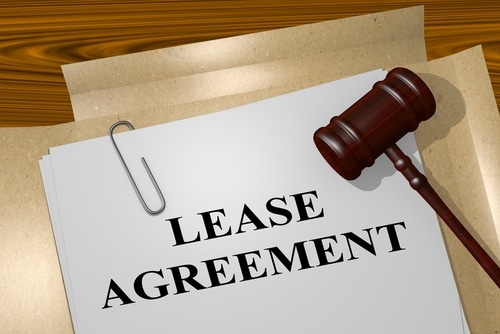
Q: I bought a commercial property that I plan to lease to a small business. I’d like to handle the leasing process myself rather than to pay for a lawyer. What should I know before using the standard lease form I found through the Internet?
A: Before trying to complete the lease arrangement yourself, you should know that not every lease form is the same and that a “standard” lease form will not cover all the possible scenarios and liabilities you may encounter. If something goes wrong down the road, you likely will have to spend much more on legal fees—and possibly on damages to your tenant—than the cost of a few upfront hours of legal help.
Q: What kind of problem might I run into that a standard lease wouldn’t cover?
A: Here are just a few of the potential problems that a do-it-yourself lease can create:
• Form leases vary in quality. Even a good form may not be right for your circumstances, particularly if the term is not meant to start until a given condition occurs, such as the landlord or tenant completing improvements to the property. Every state’s law is different. Forms that may be suitable in other states might not work in Ohio. Will the lease adequately protect you if the tenant’s employee is injured on the job, and charges you with failing to keep the property in safe condition? Ohio has special requirements that the lease must meet to give you that protection.
• Even with the right form, it’s easy to make an expensive mistake when you fill out the form. Something as simple as how you describe the rent can make a big difference if the square footage turns out to be more or less than the amount stated in the lease, or if the tenant stops paying rent. Suppose you plan to lease 1,000 square feet of space for 36 months at $12 per square foot per year. You might describe the rent as $12 per square foot per year, or as $36,000 for the term, or as $1,000 per month, or as $12,000 per year, or worse, as both $12,000 per year and $12 per square foot per year. Your choice can have important legal consequences if a dispute occurs.
• Mistakes in the legal name of the landlord or tenant could turn what you thought was a three-year lease into a month-to-month lease. And knowing whether to have the lease notarized can mean the difference between having a lease and having an unenforceable piece of paper.
Q: My real estate broker said he’d help me work out the lease details, and he won’t charge me. Can’t he do what a lawyer would do?
A: No. As soon as your broker recommends a particular lease form or tries to explain the legal effect of a lease provision, that broker is practicing law without a license. Brokers who knows the limits of their expertise will tell you that free legal advice is worth about what you pay for it—or, in some cases, less.
This “Law You Can Use” consumer legal information column was provided by the Ohio State Bar Association (OSBA). It was prepared by Columbus attorney Jack Levey of Plunkett Cooney. Articles appearing in this column are intended to provide broad, general information about the law. This article is not intended to be legal advice. Before applying this information to a specific legal problem, readers are urged to seek advice from a licensed attorney.
© 2017 Metro Monthly. All rights reserved.




